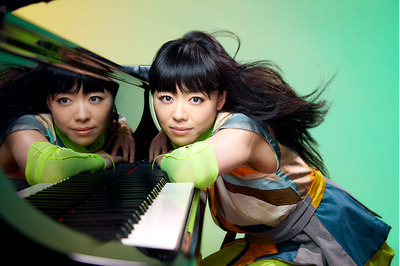Features of Children Courses
At Yamaha Music School, we believe music is more than just notes on a page. It is a language of the heart, a source of joy, and a powerful tool for holistic child development. With over 70 years of expertise and presence in more than 40 countries, Yamaha has over 450,000 students worldwide through a proven, research-based approach to music education.
Our Comprehensive Music Education program engages children through all their senses. By listening, singing, playing, and reading, children internalise music in the same natural way they learn to speak. This immersive experience helps them form a deep and intuitive connection with music, allowing them to express themselves freely and creatively.
-
Listen > Sing > Play > Read
Comprehensive education, covering listening to, singing, playing, and reading, is an important factor that enables children to fully embrace and enjoy music.
-
Create
Typically by the time children are 5-6 years old, they not only learn to play music using sheet notation but also gain the skill to arrange tunes they hear and even create their own songs without relying on sheet music.
Key Features in Detail
1. Listening Comes First
We begin with the foundation of all musical learning: listening. Training young ears to recognise pitch, rhythm, and dynamics early on helps children develop a strong musical sense. From there, they progress naturally to singing, playing instruments, reading music, and even creating their own melodies. This multi-sensory method builds not only technical skills but also imagination and emotional expression.

2. Learning Aligned with Child Development
Children grow in stages, with certain abilities developing rapidly at specific times. Yamaha’s curriculum is carefully designed to match these developmental phases. We focus on nurturing three key abilities during the periods when they are most receptive.
These include musical sensitivity, which is the ability to perceive and respond to music with accuracy and emotion. We also support the development of fine motor skills to build finger dexterity for instrument playing.
On top of that, we guide children in building music literacy, helping them read and understand musical notation. This age-appropriate method ensures learning is effective, enjoyable, and long lasting.

3. The Value of Group Learning
Our group classes create a dynamic and social environment where children learn from both their teachers and peers. Through ensemble playing, they experience the joy of making music together.
They gain confidence by performing in front of others and develop important life skills such as focus, cooperation, and empathy. Sharing musical experiences helps children appreciate individual differences, celebrate achievements, and discover new ideas through collaboration.

4. A Legacy of Innovation and Tradition
The Yamaha Method is built on more than 7 decades of educational research, refinement, and innovation. Our original curriculum, teaching techniques, and learning materials are continuously updated to reflect modern advancements in education and technology. At the same time, we honor timeless songs and teaching principles that have inspired generations of young musicians.
Trusted by educators and families around the world, the Yamaha approach combines tradition with progress to support lasting musical growth.

People who choose Yamaha
HIROMI UEHARA
Hiromi Uehara, also known as Hiromi, is a Japanese jazz composer and pianist, born in 1979 in Hamamatsu City, Shizuoka Prefecture, Japan. Her musical journey began at the age of 6 when she started playing the piano and simultaneously studied composition at Yamaha Music School.
Renowned for her exceptional technical skill, dynamic live shows, and unique blend of musical genres—spanning from stride, post-bop, and progressive rock to classical and fusion—she received the 'Best Contemporary Jazz Album' award at the 53rd Grammy Awards in 2011. Notably, she performed at the Opening Ceremony of the Tokyo 2020 Olympic Games.

Dear Parents Column
-
DO MUSIC LESSONS TEACH CHILDREN SOCIAL SKILLS?
Everyone wants their child to have the collaboration and social skills to build meaningful relationships.

-
YAMAHA MUSIC SCHOOL LESSONS ENCOURAGE CHILDREN TO DEVELOP PLANNING SKILLS
Everyone wants their child to get into the habit of setting goals and doing what it takes to achieve them.

-
THE SURPRISING TRUTH: LEARNING MUSIC IS LIKE LEARNING A LANGUAGE
Did you know that the language processing parts of your brain are activated when you learn music?


